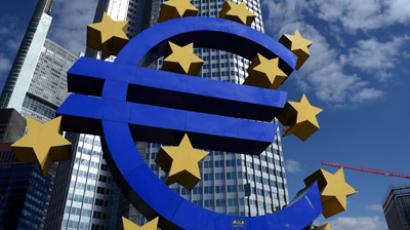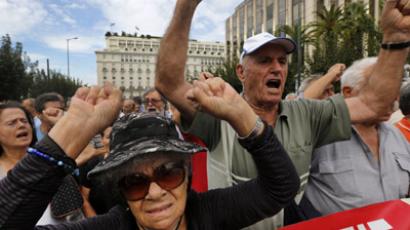'Lift the Burden': Tens of thousands march against austerity in Ireland (VIDEO)
Tens of thousands of people have marched through cities in Ireland in a massive show of anger against severe austerity measures and high costs of living.
The Irish Congress of Trade Unions,which organized the rallies, claimed more than 100,000 people attended, with some 60,000 marching in Dublin. Demonstrators also protested in Cork, Galway, Limerick, Sligo and Waterford.Tough cuts were implemented to please Ireland's creditors in the wake of the country’s banking crisis. It has been relying on a joint EU-IMF loan since 2010.The “Lift the Burden” march took place despite the Irish government’s recent bank debt deal with the European Central Bank. It saw 28 billion euro worth of costly promissory notes swapped for long-term sovereign bonds.The union’s General Secretary David Begg vowed that the campaign against the debt burden will carry on until the European authorities fully honor the agreement reached last July to separate bank debt from sovereign debt, The Irish Times reported. "It would be fatal for people to believe this issue is now resolved and we can all move on," David Begg said. "At the onset of the crisis Ireland had one of the lowest debt to GDP ratios in Europe. The difference between then and now is due entirely to Ireland socializing bank debt at the behest of the ECB, to save the European banking system."I've no confidence at all in the deal, it won't make any difference to ordinary people," Alfie Murray who marched in Dublin with his 8-year-old grandson, told Reuters. "It's the next generation that'll shoulder the cost," he said.Financial advisor Marco Pietropoli explained to RT that the Irish per capita have ended up with a far bigger bill than the most countries who had a bailout. “Therefore they are suffering a great deal more.”Pietropoli says that Ireland's situation is one of the most difficult in the EU and that Dublin's holding of the bloc's presidency isn't likely to make things any better.“I don’t think the Irish with the presidency are necessarily going to be able to exert much pressure or much influence to actually change the situation in Europe, because the power remains with the Germans.”














